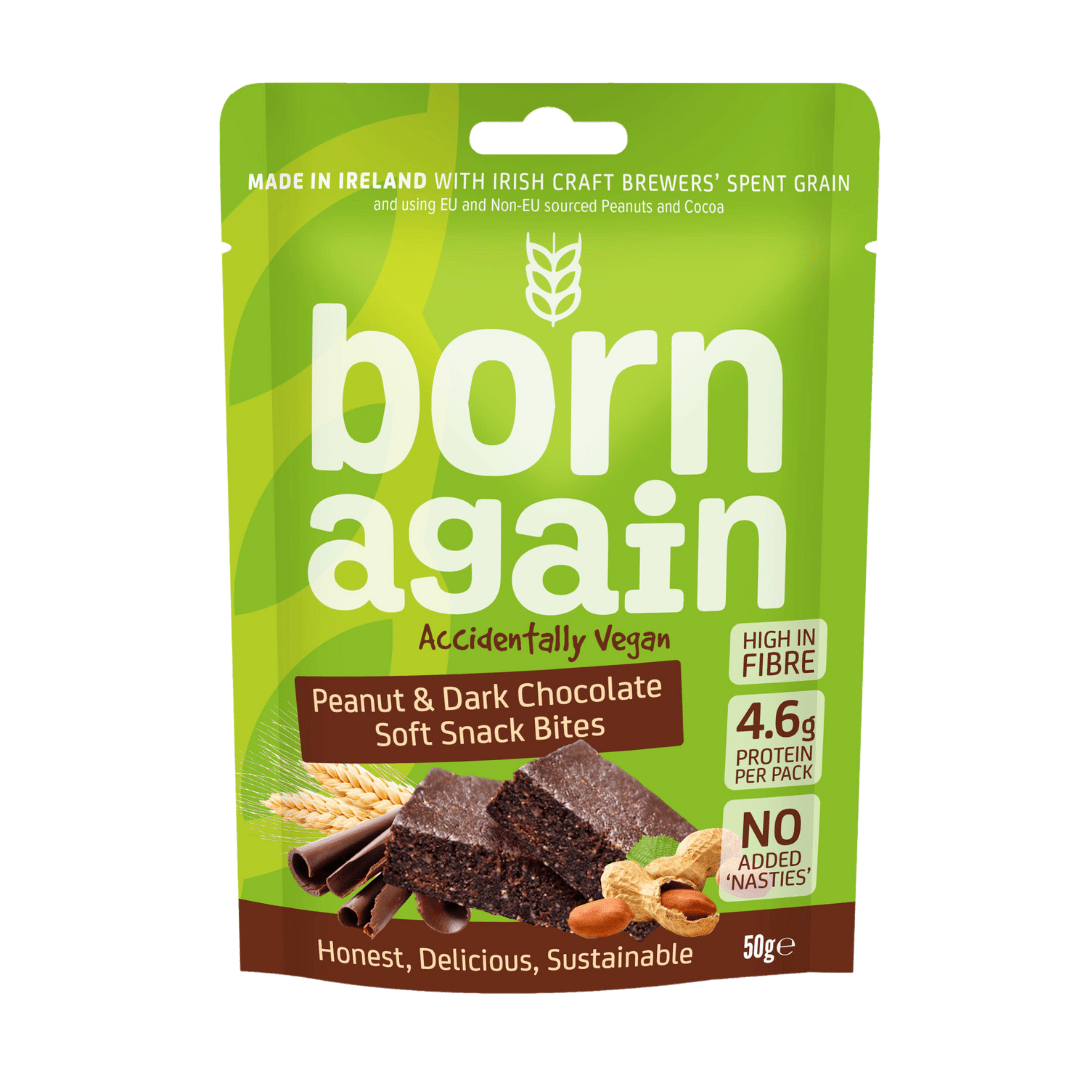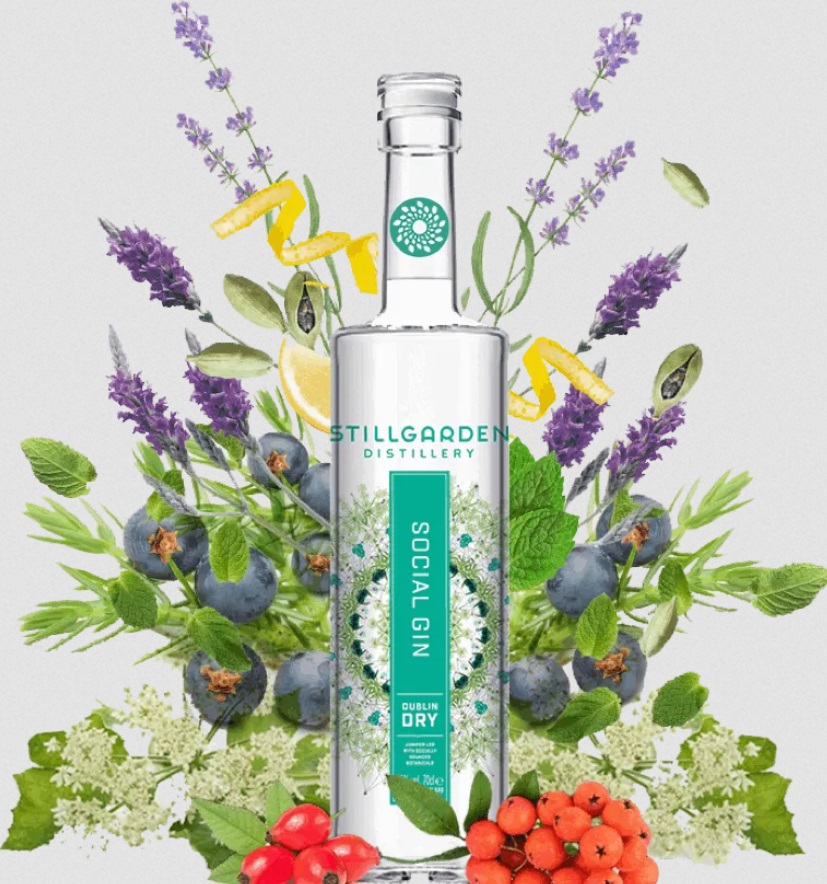The concept of a circular economy, which aims to use fewer resources and keep them in use for longer — while also avoiding unnecessary waste by design — is gaining momentum in Ireland. Not only is establishing circularity a way to reduce greenhouse gas emissions, but it also turns waste products and business challenges into opportunities, as these Irish firms prove.
When Sarah Fliessbach moved to Ireland from Germany six years ago, she was shocked by our disposable coffee cup culture. According to research by MyWaste, about 22,000 disposable cups are used in Ireland every hour.
“It struck me that events were also dominated by single-use cups. When Covid-19 hit, this approach spread like wildfire since refillables were not an option,” Fliessbach says.
She was eager to find a solution, which led her to launch Shareclub, a reusable cup model. To ensure long-term usability, Shareclub provides high-quality plastic cups that are dishwasher and microwave safe and can be remade into a new product at the end of their life.
Sarah Fliessbach
“Thanks to our mobile app, using Shareclub cups at events presents organisers with a very tangible outcome in terms of costs and savings, as well as avoiding mountains of unnecessary waste,” she says.
“So far, we have reached a promising 98-99 per cent return rate at events.”
Advertisement
With this data-driven approach, Shareclub provides a hassle-free circular packaging solution that can be seamlessly adopted at events, coffee shops, workplaces or takeaway services.
“I would like Shareclub to become an influential player in transitioning Ireland to a more sustainable economy and making it the new norm at events and other places to choose a reuse solution,” Fliessbach says.
From waste to taste
On an Arctic trekking trip, Patrick Nagle and his partner Sunkyung Choi had to ration water supplies for two days due to dried-up streams, which made them want to take meaningful climate action.
Since excellent nutrition is essential for long-distance hikers, the pair came up with the idea of creating healthy, sustainable snacks using reclaimed natural resources.
Together they founded Well Spent Grain in 2022, having discovered brewers’ spent grain, an underutilised byproduct of the beer brewing process with excellent nutritional values. According to Teagasc, the state food and agriculture agency, brewers’ spent grain accounts for about 85 per cent of brewery waste. It is high in fibre and protein, and contains vitamins and minerals, making it the perfect ingredient for Well Spent Grain’s first product, Born Again Bites.

Well Spent’s Born Again Bites
While the healthy snacks are an excellent example of circularity, Nagle admits that educating their audience on what makes their product a better choice for people and for the planet is a challenge.
“We collaborated with another Irish startup, Bold Donut, which specialises in gamification, to create an online mini-game. It takes players on a journey to explore where brewers’ spent grain comes from and what makes our product a more sustainable and healthier option,” Nagle says.
Advertisement
The game can be played on the Well Spent Grain website (well-spent-grain.com).
Choi adds that succeeding as a circular business means more than just achieving financial returns.
“I feel more fulfilled; I’m doing something meaningful,” she says. “We are mindful that scaling our business means scaling our impact, so we aim to get more involved and create value within local communities.”
Well Spent Grain’s Born Again snacks are available at selected suppliers nationwide.
Prosocial disruption
The Dublin-based distillery Stillgarden has been blending science, community and nature since it started operating in 2022. Viki Baird, its co-founder, says that managing a community garden as part of the business is one manifestation of the brand’s so-called “prosocial disruption” approach.
“We are based in an up-and-coming neighbourhood in Dublin 8 that didn’t have the best reputation,” she says. “There was abandoned land close to us, which was a hub for antisocial behaviour, and we saw the potential to create a community garden. Everyone said we were mad and that it would never work.”
Advertisement

Stillgarden’s flagship product, Social Gin
With support from Dublin city council, the Stillgarden team turned the site into a flourishing garden that now plays a vital role in creating its products. The distillery’s flagship product, Social Gin, uses lavender and mint from the plot.
All aspects of running Stillgarden Distillery reflect an appreciation for resources and people, from managing waste and energy to hosting programmes at the visitor centre and garden.
“We keep production independent and local in every bit of what we do, focusing on building a community and giving back, besides running a business,” Baird says. “Using our prosocial approach to change other underdeveloped areas would be an amazing opportunity to scale our impact and improve people’s lives.”
Building a circular enterprise puts innovators’ skills to the test and requires continuous learning. For businesses looking to better understand and adopt circularity, Modos sustainable business training is provided to start-ups and SMEs by the Regional Waste Management Planning Offices and Dublin city council, supported by the government of Ireland. See localenterprise.ie.
This post was originally published on here







